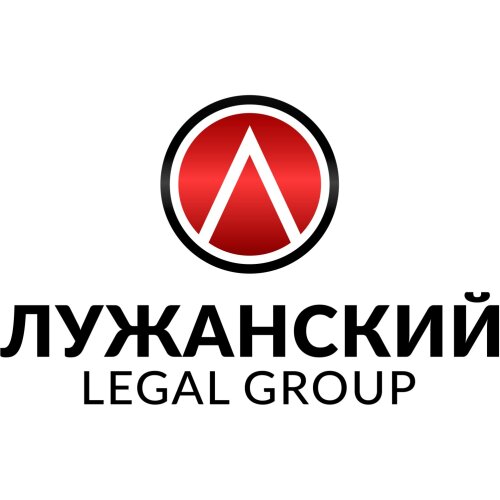Best International Lawyers in Kyrgyzstan
Share your needs with us, get contacted by law firms.
Free. Takes 2 min.
Or refine your search by selecting a city:
List of the best lawyers in Kyrgyzstan
About International Law in Kyrgyzstan
International law in Kyrgyzstan pertains to legal issues that cross international borders, such as trade agreements, immigration laws, and foreign investments. It governs the relationships between individuals, businesses, and governments from different countries.
Why You May Need a Lawyer
You may need a lawyer in Kyrgyzstan for international legal matters to ensure that your rights are protected and that you are following the proper regulations. Whether you are involved in a business dispute, facing immigration issues, or seeking to expand your operations internationally, a lawyer can provide valuable guidance.
Local Laws Overview
In Kyrgyzstan, international law is governed by both domestic legislation and international treaties. It is important to be aware of the country's laws on foreign investments, import/export regulations, and immigration requirements. Understanding these laws can help you navigate the legal landscape more effectively.
Frequently Asked Questions
1. What are the key international treaties that Kyrgyzstan is a party to?
Kyrgyzstan is a party to various international treaties, including the United Nations Convention on Contracts for the International Sale of Goods and the New York Convention on the Recognition and Enforcement of Foreign Arbitral Awards.
2. Do I need a visa to enter Kyrgyzstan for business purposes?
Yes, depending on your nationality, you may need a visa to enter Kyrgyzstan for business purposes. It is important to check the visa requirements beforehand.
3. How can I resolve a business dispute with an international partner in Kyrgyzstan?
You can resolve a business dispute with an international partner in Kyrgyzstan through negotiation, mediation, arbitration, or litigation. Consulting with a lawyer can help you determine the best course of action.
4. What are the regulations for importing goods into Kyrgyzstan?
Importing goods into Kyrgyzstan is subject to customs regulations, tariffs, and licensing requirements. It is important to comply with these regulations to avoid any legal issues.
5. Can I enforce a foreign judgment in Kyrgyzstan?
Yes, foreign judgments can be enforced in Kyrgyzstan under certain conditions. It is advisable to seek legal advice to understand the process and requirements for enforcing a foreign judgment.
6. How can I protect my intellectual property rights in Kyrgyzstan?
To protect your intellectual property rights in Kyrgyzstan, you can register your trademarks, patents, and copyrights with the relevant authorities. Enforcing these rights may require legal assistance.
7. Are there any restrictions on foreign investment in Kyrgyzstan?
There are regulations governing foreign investment in Kyrgyzstan, including restrictions in certain sectors. It is important to consult with a lawyer to understand the requirements and potential challenges for foreign investment.
8. What are the steps to establish a business presence in Kyrgyzstan?
Establishing a business presence in Kyrgyzstan involves registering your company, obtaining the necessary permits and licenses, and complying with tax and employment regulations. A lawyer can assist you throughout the process.
9. How can I appeal a decision of an international tribunal in Kyrgyzstan?
You can appeal a decision of an international tribunal in Kyrgyzstan by following the procedures set out in the relevant laws and regulations. Legal representation is recommended for navigating the appeals process.
10. What are the legal implications of cross-border transactions in Kyrgyzstan?
Cross-border transactions in Kyrgyzstan are subject to international trade laws, tax implications, and contractual obligations. Understanding the legal implications can help you avoid disputes and ensure compliance with the law.
Additional Resources
For further information on international law in Kyrgyzstan, you can refer to the Ministry of Foreign Affairs and the State Committee on Investments and Anti-Monopoly Policy. Additionally, legal organizations such as the Kyrgyz Bar Association can provide valuable resources and referrals to experienced international law lawyers.
Next Steps
If you require legal assistance in international law matters in Kyrgyzstan, contact a qualified lawyer with experience in handling international legal issues. Consultations with legal professionals can help you understand your rights, obligations, and options for resolving any international legal challenges you may face.
Lawzana helps you find the best lawyers and law firms in Kyrgyzstan through a curated and pre-screened list of qualified legal professionals. Our platform offers rankings and detailed profiles of attorneys and law firms, allowing you to compare based on practice areas, including International, experience, and client feedback.
Each profile includes a description of the firm's areas of practice, client reviews, team members and partners, year of establishment, spoken languages, office locations, contact information, social media presence, and any published articles or resources. Most firms on our platform speak English and are experienced in both local and international legal matters.
Get a quote from top-rated law firms in Kyrgyzstan — quickly, securely, and without unnecessary hassle.
Disclaimer:
The information provided on this page is for general informational purposes only and does not constitute legal advice. While we strive to ensure the accuracy and relevance of the content, legal information may change over time, and interpretations of the law can vary. You should always consult with a qualified legal professional for advice specific to your situation.
We disclaim all liability for actions taken or not taken based on the content of this page. If you believe any information is incorrect or outdated, please contact us, and we will review and update it where appropriate.
Browse international law firms by city in Kyrgyzstan
Refine your search by selecting a city.











